
Karl Marx’s last years, when he famously failed to complete all the volumes of Capital, were for a long time viewed as a period of illness and even senescence, even though he was only 64 years old at his death . . .
KEVIN B. ANDERSON is Professor of Sociology, Political Science and
Feminist Studies at University of California, Santa Barbara. He is the author of Lenin, Hegel, and Western Marxism: A Critical Study (1995) and Marx at the Margins: On Nationalism, Ethnicity, and Non-Western Societies (2010) and the co-editor of the Rosa Luxemburg Reader (2004).

Karl Marx’s last years, when he famously failed to complete all the volumes of Capital, were for a long time viewed as a period of illness and even senescence, even though he was only 64 years old at his death . . .

The defeat of the U.S. and the seizure of power by the Taliban mark a real turning point. This reveals both imperialism and fundamentalism as obstacles to human emancipation.
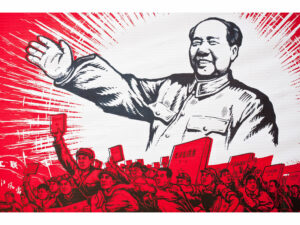
As against nearly a century of debates over Stalinism, the international left has never come to terms with Maoism, especially its global impact.
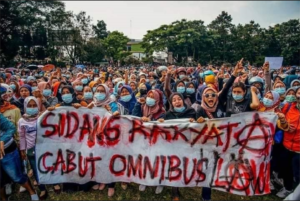
Over a million people have taken to the streets in Indonesia to protest a neoliberal law that would roll back labor protections, especially for working women, while also opening the road toward greater environmental destruction.
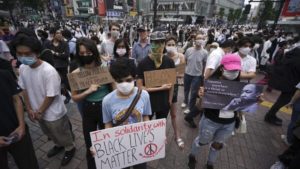
The Black Lives Matter uprising in the USA, the working-class resistance to unsafe conditions in Italy, and the fight by Hong Kong youth against the repressive Chinese regime exemplify a new generation on the move for radical change.

What faces us in the post-COVID-19 world as we struggle to uproot capitalism and its malignant racism, sexism, heterosexism, and environmental destruction, both in theory and in practice?
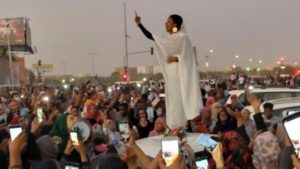
Sudan’s revolution is not only Arab but also African in a way not seen in the 2011 Arab uprisings. The old regime combined Islamism and a racist form of Arabism with military rule, touching off in response a . . .

The Middle East and the world woke up on the morning of Friday, January 3 to the shocking news that U.S. missiles had struck the Baghdad Airport, in a targeted assassination of Iran’s General Qassem Soleimani.
Donald Trump’s cold-blooded assassination is . . .

On December 10, the mass mobilization against pension cuts that has brought the French economy to a halt entered its sixth day, with over 500,000 taking to the streets in demonstrations across the country. Strikers shut down bus, subway, and . . .

Published as “Letter to My Arab Readers” for the new translation into Arabic, Cairo: Arweqa Institution for Studies, Translation, and Publishing, 2019, translated by Hisham Rouhana.
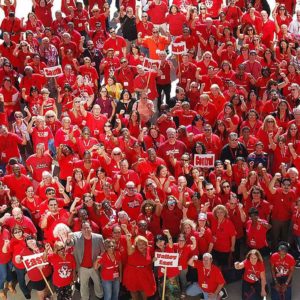
In January 2019, a massive strike of over 30,000 public school teachers stunned the Los Angeles power structure when it received massive, almost unanimous public support, especially in the city’s large Latinx and Black communities. Latinx students now make up . . .
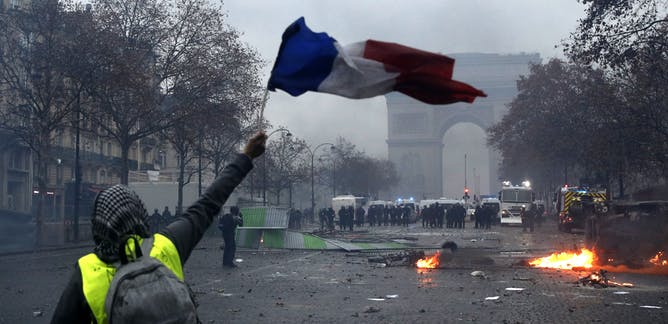
The White-Hot Anger of French Working People as a Real Fact
After rumbling on social media for weeks, the Yellow Vests (Gilets Jaunes) movement emerged suddenly on November 17, when no less than 300,000 protestors occupied roads, traffic circles in exurbs and rural areas. They wore the yellow safety vests the government requires all motorists to purchase, and which immediately became the emblem of the movement. That week and the next, Yellow Vests also ventured into the heart of Paris, blocking the gilded Boulevard Champs-Elysées and almost reaching the nearby presidential palace. From the beginning, women were unusually prominent in the local occupations and the street marches. At the same time, the Yellow Vests chased away many politicians who visited their protest sites, including some from the left.

It is the sixtieth anniversary of Raya Dunayevskaya’s Marxism and Freedom, a work both of its time and ahead of its time.

Adapted from a presentation to the Chicago Convention of the International Marxist-Humanist Organization, July 13, 2018.
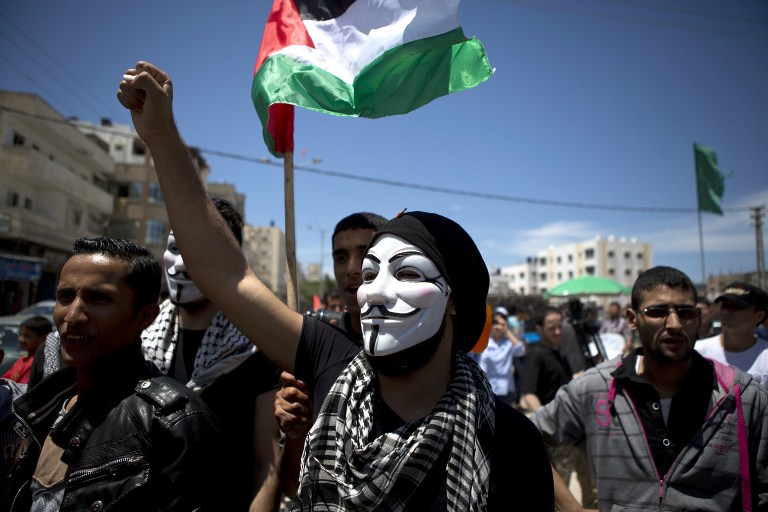
US President Donald Trump’s ripping up of the Iran nuclear pact, his shocking relocation of the US Embassy to Jerusalem, and Israeli Prime Minister Netanyahu’s equally shocking mass murder of peaceful Palestinian demonstrators has revealed the utter depravity of today’s rulers. Despite their sometimes chaotic and reckless appearance, however, these moves amount to nothing short of a breathtaking attempt by the US, with its Israeli and Saudi allies, to realign Middle East politics by creating an uncontested hegemony for the entire region. To this end, Iran must be crushed as a rival subimperialist power, Russia and Turkey dealt in or sidelined, and both the remainder of the Arab revolutions and newly resurgent Palestinian movement repressed.
 On March 30, over 30,000 Palestinians – children, women, and men – gathered near the Gaza border with Israel. As they assembled several hundred yards away from the border fence, 18 peaceful demonstrators were gunned down by Israeli military snipers using live ammunition, with over a thousand reportedly suffering bullet wounds. Many of the demonstrators had come as whole families, with picnic supplies.
On March 30, over 30,000 Palestinians – children, women, and men – gathered near the Gaza border with Israel. As they assembled several hundred yards away from the border fence, 18 peaceful demonstrators were gunned down by Israeli military snipers using live ammunition, with over a thousand reportedly suffering bullet wounds. Many of the demonstrators had come as whole families, with picnic supplies.

Often, it seems that the legacy of the Russian Revolution of November 1917 lays like a dead weight upon the living. Everywhere voices are raised – from anarchists to social democrats and from liberals to conservatives – telling us that we need to jettison its legacy of authoritarian socialism, of prison camps, and ultimately, of economic and social collapse. At the same time, the left of today stands for grassroots democracy, opposition to war and imperialism, opposition to racial and gender oppression, and once we move to the left of social democracy, abolition of capitalism and of the state.

What does it mean to celebrate and concretize for today Marx’s greatest work, Capital, Vol. I? Such a discussion is terribly important at this juncture, when we are in a new situation where even some sectors of the right have started to attack neoliberalism. The Brexit vote in the UK, the large vote for Le Pen in France despite her eventual defeat by a neoliberal candidate, and above all, the Trump campaign have placed on the agenda a new form of right-wing populism with neofascist overtones that breaks with some key features of neoliberalism, such as free trade pacts, somewhat more open borders, and “humanitarian” intervention. At the same time, Trump as president has put forth an incoherent agenda that contains major continuities with neoliberal austerity and old-style militarism, above all in the attempt to gut Obamacare.
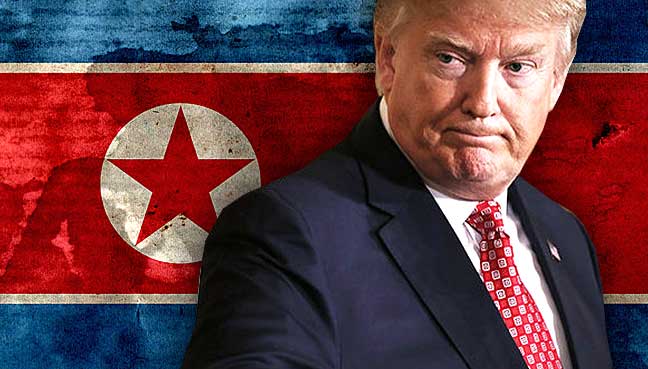 U.S. President Donald Trump crossed to new stage in the annals of warmongering in his United Nations speech of September 19 when he declared, “The United States has great strength and patience, but if it is forced to defend itself or its allies, we will have no choice but to totally destroy North Korea.” This threat to incinerate an entire nation of 25 million people amounts to nothing less than genocide. At the UN itself, the speech was met with stunned silence, with one major exception, vigorous applause from the militaristic Prime Minister of Israel, Benjamin Netanyahu.
U.S. President Donald Trump crossed to new stage in the annals of warmongering in his United Nations speech of September 19 when he declared, “The United States has great strength and patience, but if it is forced to defend itself or its allies, we will have no choice but to totally destroy North Korea.” This threat to incinerate an entire nation of 25 million people amounts to nothing less than genocide. At the UN itself, the speech was met with stunned silence, with one major exception, vigorous applause from the militaristic Prime Minister of Israel, Benjamin Netanyahu.
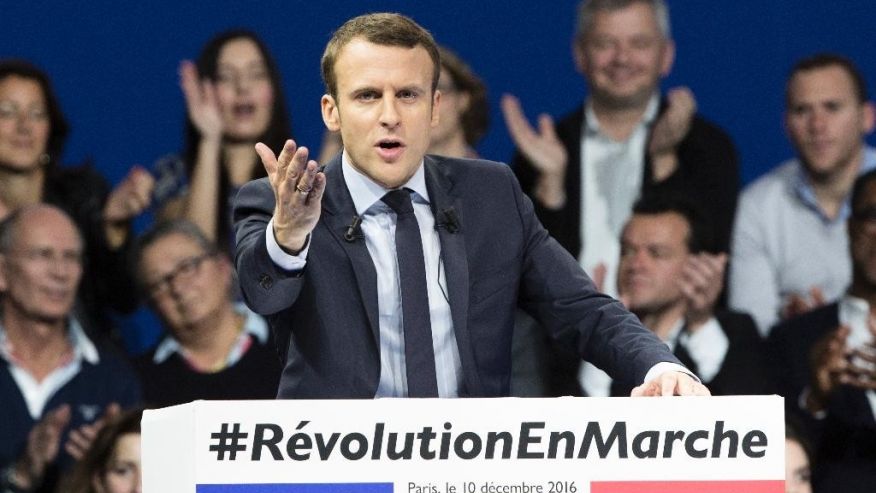
At one level, France’s 2017 elections were a huge triumph for global capital. A young and very modern neoliberal candidate, Emmanuel Macron, won huge majorities for his new political party, On the Move (En Marche), in both the presidential and the legislative elections. At another level, however, Macron’s pathway forward is fraught with challenges, both from a long stagnant economic and a restive French public, many of whom stayed away from the final round of voting.

Within a few days in April, the Trump administration pivoted away from its nearly open support for the Assad regime to a military attack on it. This was followed by harsh language against Russia, the setting off of a huge bomb in Afghanistan, and the dispatch of an aircraft carrier armed with nuclear weapons toward North Korea.